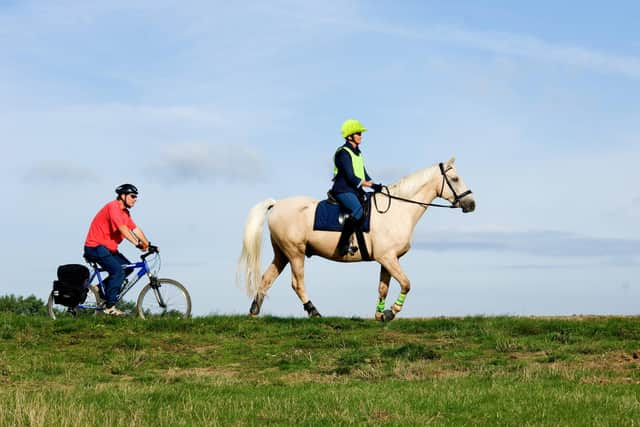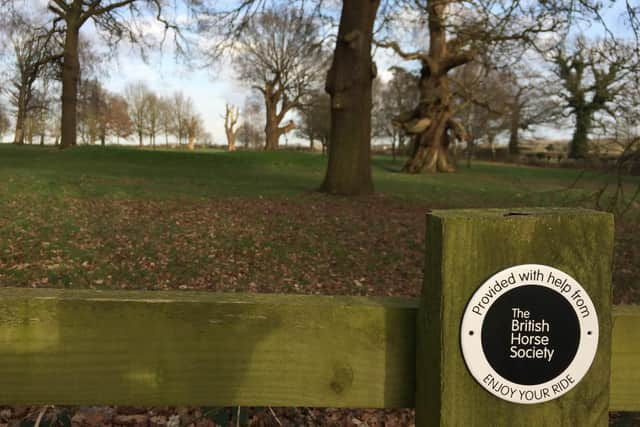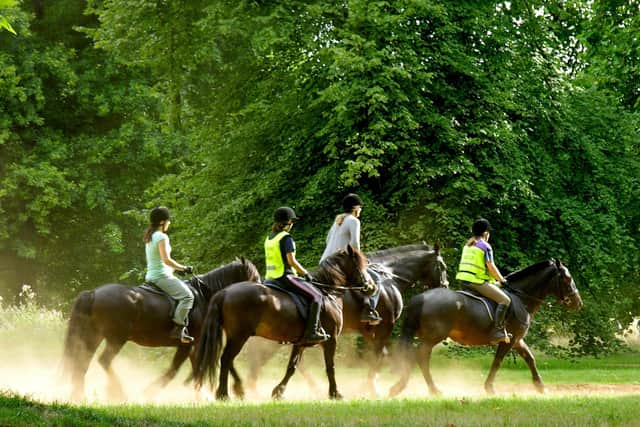Horse riders could be given more access to new National Trail which passes through Yorkshire after threat of legal action
Previous proposals for the popular trail, the Coast to Coast Wainwright trail, which stretches from St Bees in Cumbria to the sea-side village of Robin Hood’s Bay in North York Moors National Park used a combination of footpaths, which horse riders and cyclists cannot use, and bridleways, which they can.
This would have created dead end sections along the route for anyone on a horse or bike, effectively preventing people from riding its length.
Advertisement
Hide AdAdvertisement
Hide AdThe British Horse Society (BHS) and Cycling UK have together convinced Defra and Natural England to reconsider, after threatening legal action.


If changes are made, this trail could now become the third of fifteen national trails in England open to cycling and horse riding along its length.
They are now awaiting clarification from Defra and Natural England about timescales and processes for the new consultation.
At the moment, horse-riders and cyclists can only use 22 per cent of England’s rights of way network or ride two out of 16 of the National Trails and say that access should be increased, not restricted.
Advertisement
Hide AdAdvertisement
Hide AdThe two organisations believe a “braided” route, which would divert horse riders and cyclists from the main walking route where suitable, can be achieved for minimal cost and has been proved possible on other popular national trails such as the North Downs Way’s riders’ route launched in 2018 with the support of Cycling UK and the BHS.


The organisations say that Natural England and Defra had failed to consult with Cycling UK and the BHS during the initial consultation phase of the new National Trail. This is despite both organisations being prescribed outdoor user groups which should be consulted on changes to rights of way.
On this basis, the two organisations wrote to the previous Secretary of State for Environment, Food and Rural Affairs (Defra), the Rt Hon Ranil Jawawardena MP calling on the government to reconsider the proposals for the route as Natural England had failed to consult appropriately.
Mark Weston, the BHS’ Director of Access said: “As vulnerable road users, horse riders face considerable dangers on our roads and the need for safer off-road riding opportunities has never been greater. The British Horse Society and Cycling UK look forward to working with Defra and Natural England to make the trail useable for horse riders and cyclists in its entirety.”
Advertisement
Hide AdAdvertisement
Hide AdDuncan Dollimore, Cycling UK’s head of campaigns added: “Cycling UK and the BHS are relieved the government has now recognised the concerns our organisations raised about the exclusion of outdoor enthusiasts we represent from a new national trail.


“The Wainwright path is a fantastic attraction for the north of England, and as a National Trail its benefit will be felt by all the rural communities it passes through. Making it accessible to cycling and horse riding enthusiasts will mean it’s open to more visitors.
“If you ride a bike or a horse, you can use only 22 per cent of England’s rights of way network or ride two out of 16 of our National Trails. We need to do more to increase access, not limit it. The benefits are real for rural hospitality businesses, which will see increased trade from a more diverse group of visitors.”
The Trans Pennine Trail 2022 visitor survey also found that while the daily spend of trail users was £44.41 per person, for horse riders it was £84.98.
Advertisement
Hide AdAdvertisement
Hide AdIn addition, research by Cycling UK has found cycle tourism in the UK generates £520m per year with 1.23m overnight trips each year. A recent survey of riders of King Alfred’s Way, a route starting in Winchester that Cycling UK launched in 2020, showed that on average cyclists spent £83.60 per day on food and accommodation.
The government announced in August that The Coast to Coast route stretching from St Bees in Cumbria to Robin Hood’s Bay in the North York Moors National Park will become a new National Trail and that Natural England would work alongside partners to improve the popular route, with £5.6m committed to upgrade the 197-mile path.
Benefits to the Coast to Coast becoming part of the internationally recognised National Trails family include meeting the National Trail Quality Standards with investment to ensure the path is made more accessible for people of different abilities such as removing stiles and using accessible gates; quality signage, waymarking and path surfaces provided consistently across the whole route and circular paths and link routes to make the trail more accessible for shorter walks.
